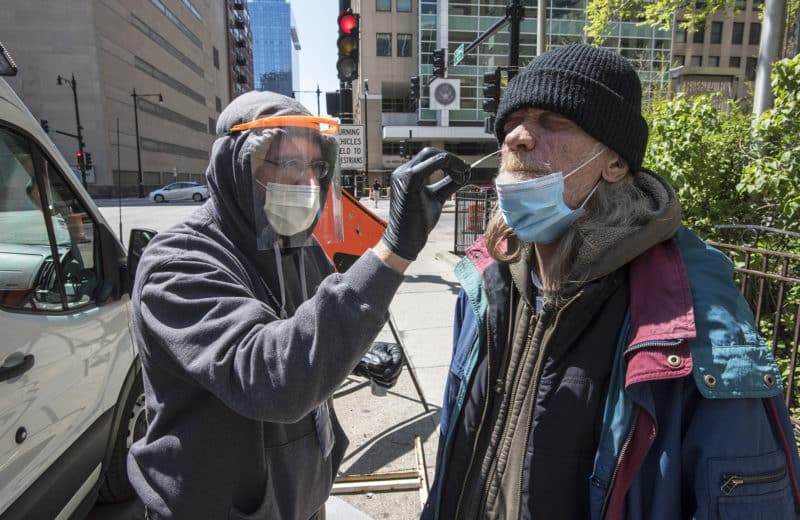Leveraging your resources when a loved one is in the hospital
I’ll never forget the night of January 20, 2019. A total lunar eclipse graced the sky, and my father was in the operating room undergoing a lung transplant.
The surgery — though incredibly risky and with a high chance of fatality — was a success. My father’s recovery has been anything but.
Errors by my father’s transplant team resulted in countless complications, extensive hospital stays and lengthy emergency room (ER) visits. Doctors were slow to recognize that his body wasn’t adapting to the new lung, and his hospital stay stretched over 50 days. The day after he was discharged, he was rushed back to the ER. Six weeks later, a botched bronchoscopy punctured his lung, severely impairing his breathing and causing air to leak into his stomach, chest and face.
We encountered many more failures throughout his post-transplant journey.
At one point, a lung transplant fellow told me he’d never seen symptoms like my father’s before and that he didn’t know how to treat them. There were also routine breakdowns in communication between the lung transplant team and me and my father.
Medical missteps
Unfortunately, medical errors and patient mismanagement are almost expected in today’s healthcare system. About 10% of all U.S. deaths are due to medical error, according to a Johns Hopkins study published in The BMJ.
“People don’t spend nearly as much timeas they used to with patients, and things get missed,” says Teri Dreher, chief advocate and president of NShore Patient Advocates.
An estimated 440,000 people die from medical errors each year.
Medical errors are the third-highest cause of death in America, Dreher adds. According to a recent Journal of Patient Safety study, an estimated 440,000 people die from medical errors each year.
Fortunately, there are proactive steps patients can take to improve their chances of better care.
Know your story
As hard as it may be, it’s important to have a rehearsed narrative when you enter a hospital. Know your symptoms, when they started, what medications you’re taking, your allergies and your family history of major illnesses. You’ll need to repeat this information to a lot of people, so having it written down — or, better yet, memorized — helps speed the process in the ER and beyond.
Jot down questions and information about treatment plans in a journal, advises the Empowered Patient Coalition, a nonprofit organization dedicated to informing and empowering patients regarding their medical treatment.
When meeting with the medical team during daily rounds, it’s important to have questions prepared: What is the care plan for that day? Are doctors ordering any new medications? How can your support system help?
The importance of patient advocates
A patient advocate or care coordinator is someone who can make informed decisions for a patient through communication with providers and hospital staff. This includes helping a patient navigate screenings, diagnoses, treatments and follow-ups and, in extreme cases, fighting for better medical care.
Having someone who liaises with a half-dozen or more medical personnel, asks questions, keeps track of medications and schedules appointments is not only important, it’s vital.
“Ideally, care coordinators are able to provide patients and family members with available options, allowing them to make informed decisions,” says Wendy K. Benson, chief operating officer of 2×2 Health, a concierge service that connects individuals with patient care coordinators.
“If someone doesn’t know the right questions to ask or if they are feeling embarrassed and don’t feel comfortable asking a question, care coordinators can help take in the important information and assist you and your loved ones in organizing and processing it.”
Some families hire a private patient advocate, but in many cases the cost, which can range from $125 to $350 per hour, is not feasible. Most hospitals have patient advocates on staff, but they work for the hospital system and are not impartial third parties. And so the role of advocate often falls on a family member or friend.
“It’s critical for patients and family members to be familiar with the plan, know the available options and make informed decisions with confidence. An advocate or care coordinator helps patients and their family members better understand the entire situation,” says Elizabeth Myers, founder and CEO of 2×2 Health.
Complaints about care
When a patient is not receiving adequate care or there are critical lapses in communication, Dreher suggests communicating with each level of the hospital chain of command, beginning with the staff nurse and then the charge nurse. If this does not resolve the issue, ask to speak with the director of the unit or the ICU manager, and then move on to the hospital’s risk management department, if necessary.
It’s critical to approach every situation calmly and remember that hospital staffers have numerous other patients they are also caring for. Families who get upset in hospitals may be quickly written off as problematic by staffers, creating a barrier to quality care. If you feel you have a valid complaint, Dreher recommends taking a deep breath, calming down and then asking to speak to a hospital manager or supervisor.
A hospital’s risk management department works to prevent situations that could result in losses and liabilities for the hospital. It may also handle communications with patients and families when things go wrong.
My father’s care quality deteriorated so much that I called the risk management department and explained our situation. Within a day, I received a phone call from the head transplant doctor apologizing for the lapses in care. My father’s care and the communication has improved in small ways since.
The healthcare system can be complex and confusing. But by asking questions and having a patient advocate — either a private advocate or a trusted love one — you can improve communication and take steps to get quality, patient-centered care.
Tips for Being a Loved One’s Patient Advocate
- Be repetitive
When talking to a doctor or nurse practitioner, summarize and repeat what they tell you. This ensures everyone is on the same page. - Always take notes
You might be speaking with four or five medical professionals in a day. It’s helpful to jot down the date and time of each conversation, as well as the person’s name and their treatment recommendations. A paper trail can be important. - Know the patient’s rights
Many hospitals have a list of patient rights on their website, such as a patient’s right to privacy, right to an interpreter or right to review a copy of their medical record. Access this bill of rights with a smart phone or computer and become familiar with them. - Refuse student care, if desired
Medical students need to learn, but student care can slow your access to treatment and increase the chance of complications. And if you have questions about decisions made by residents, ask specifically for the attending physician. - Escalate complaints
When things start to go wrong, talk to the charge nurse, then the director of the unit, then the hospital’s risk management department. - Be resourceful
Look for guides to patient care. The Empowered Patient Coalition has information about managing your care, hospital checklists and patient safety resources. Visit empoweredpatientcoalition.org to access these tools.












